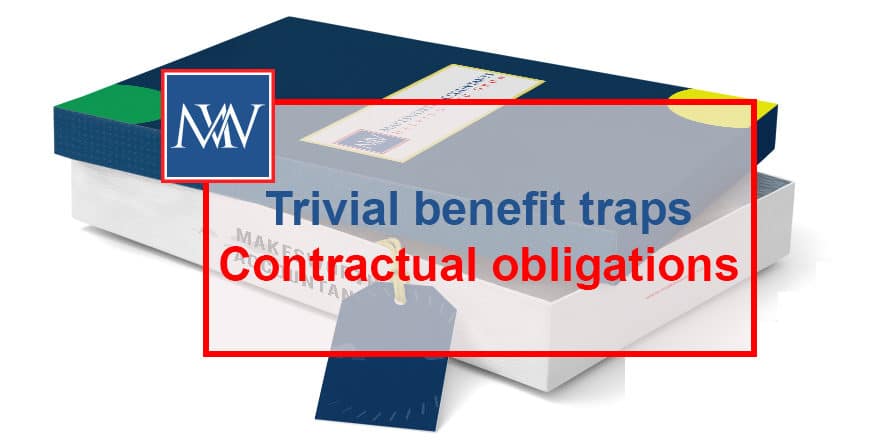
Trivial benefit traps – Contractual obligations
The trivial benefits exemption allows employers to provide employees with low cost benefits free of tax and National Insurance and any reporting obligations. For the purposes of the exemption, a benefit is trivial if the cost per head is not more than £50. Where trivial benefits are provided to an officer of a close company or a member of their family or household, an annual cap of £300 per tax year also applies.
For the exemption to be available, the benefit must not be provided in return for services provided and the employee must not be contractually entitled to receive the benefit.
Contractual entitlement
Contractual entitlement is wider than simply inclusion in the contract of employment. Consequently, the fact that the contract makes no reference to the provision of trivial benefits is not enough to satisfy the conditions for the exemption.
In the December 2019 issue of their Employer Bulletin, HMRC highlighted a number of ways in which a contractual obligation may arise, including:
- a letter to the main contract document
- a staff handbook
- a redundancy agreement
- an employer union agreement
If any of these provide for the employee to receive the trivial benefit, the exemption will not apply.
Beware of creating a ‘legitimate obligation’
Employers seeking to make use of the trivial benefits exemption should also be wary of falling into the ‘legitimate expectation’ trap; a contractual obligation may also arise is the employee has a legitimate expectation to receive the benefit.
In the December 2019 issue of Employer Bulletin, HMRC illustrates this with an example of an employer who provides employees with a cream cake each Friday. While there is no contractual obligation for the employer to provide the employees with a cream cake on a Friday, the fact that the employer does so every Friday creates a legitimate expectation, taking the provision of the cakes outside the trivial benefits exemption.
Frequency seems to be a problem here – HMRC seemingly does not apply the legitimate expectation argument where a benefit is provided annually, even if it is provided each year. HMRC’s Employment Income Manual at EIM21867, states:
“Just because a gift is provided each year, or is provided to all staff members, does not mean that the employee has a contractual entitlement to it.”
The guidance instructs HMRC officers that they “should not normally challenge modest gifts that are provided infrequently to employees, just because they are given to employees each year – for example, a Christmas or birthday gift”.
Good practice
To avoid falling into the legitimate expectation trap, vary both the nature and timing of trivial benefits provided to employees.
For more information, Book a Free Consultation
Need Accountancy Support?
For information on bespoke training, or if you have any other questions for Makesworth Accountant, please fill in your details below
















 151
151